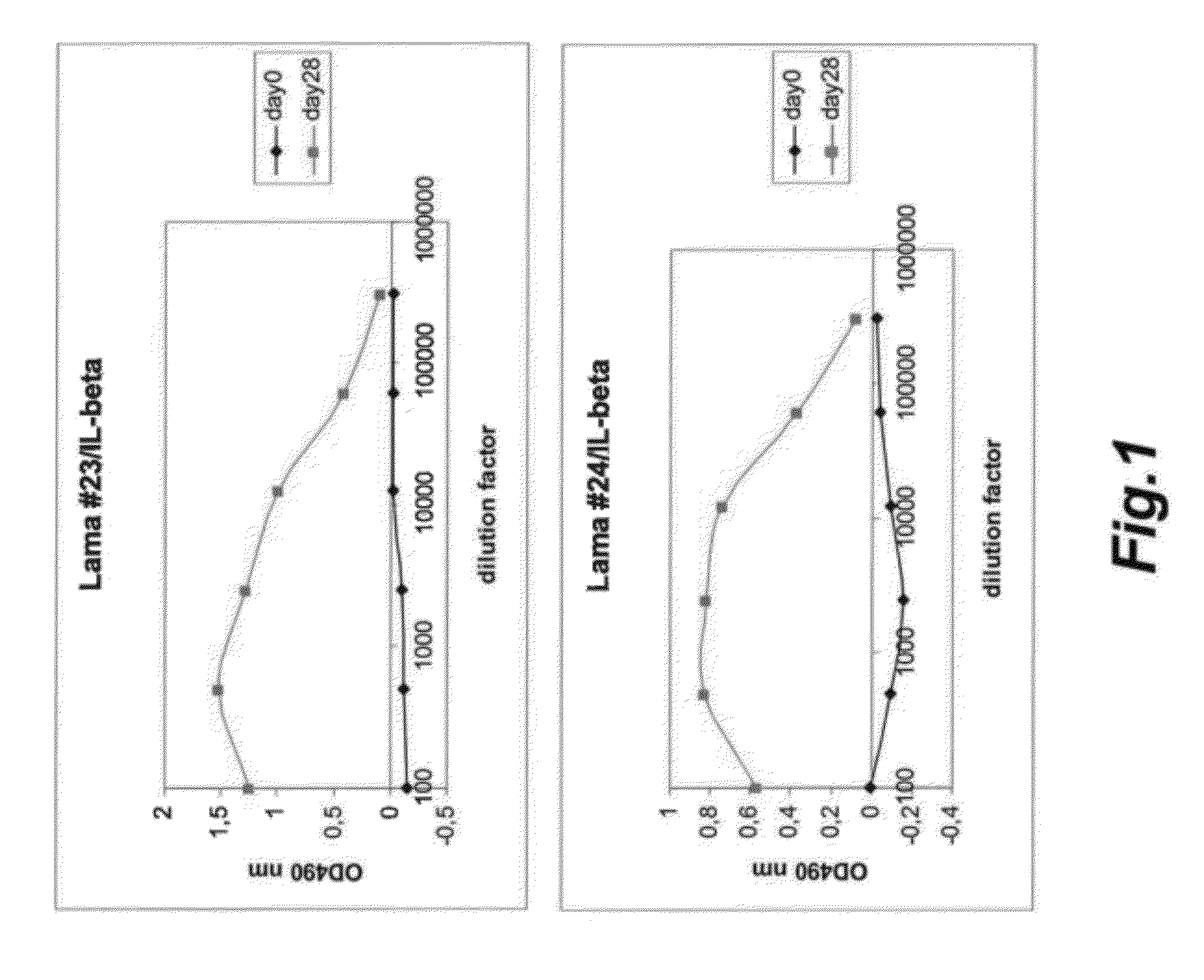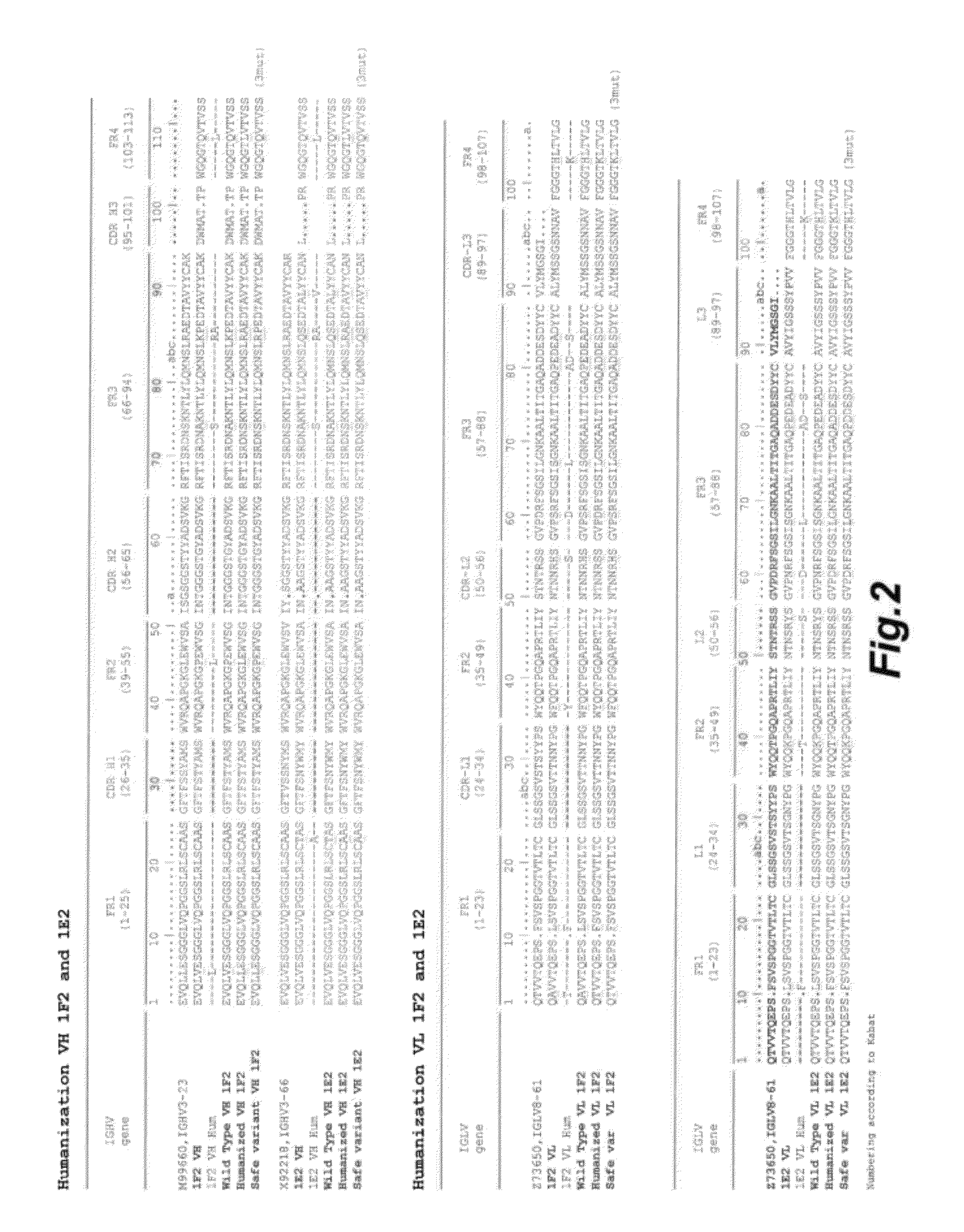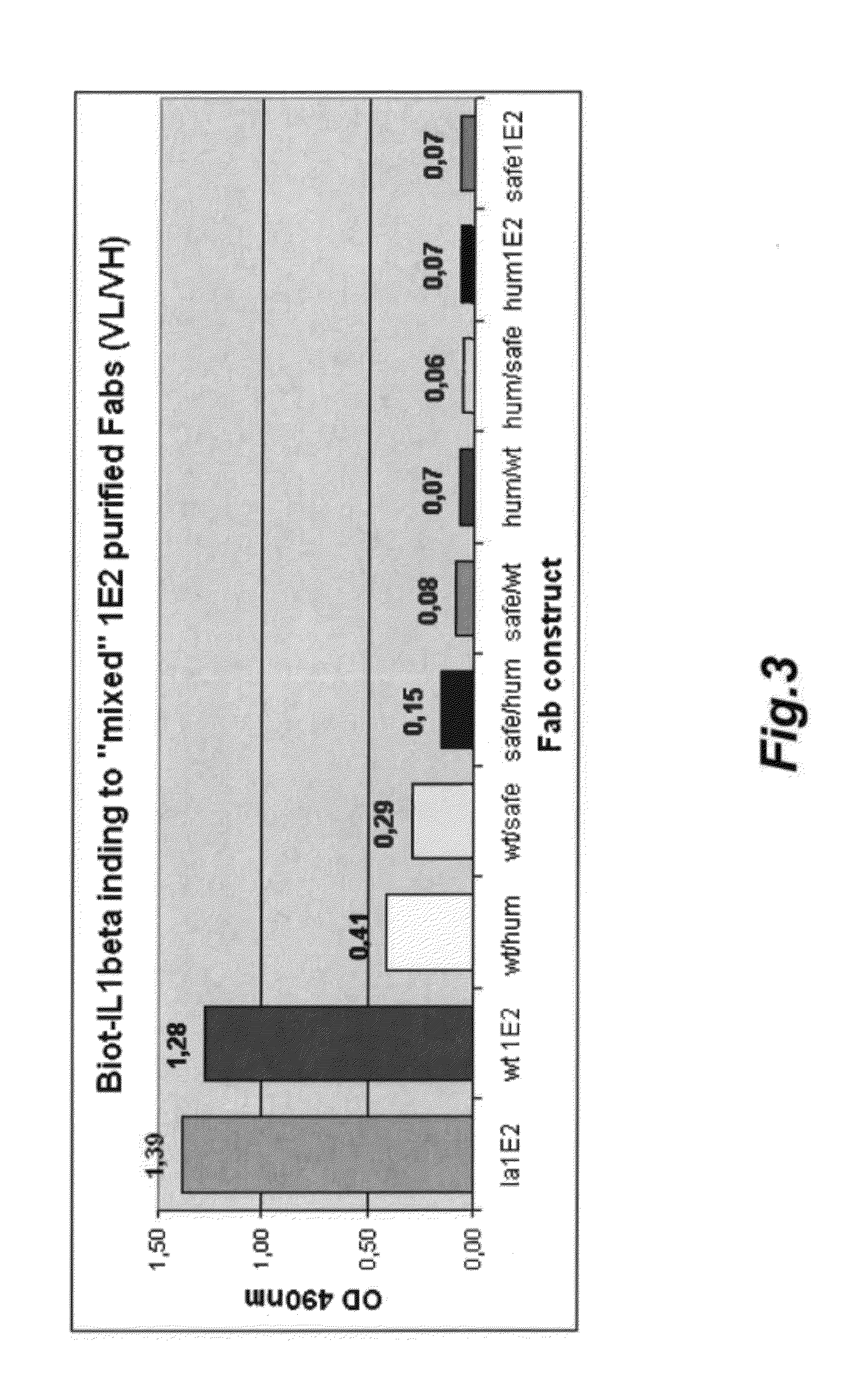Antigen binding polypeptides
a polypeptide and antigen technology, applied in the field of new antigen binding polypeptides, can solve the problems of limited use of rodent (specifically murine) monoclonal antibodies in human therapy, risk of losing affinity and potency, and reducing immunogenicity, so as to achieve low specificity and affinity , the effect of minimising immunogenicity
- Summary
- Abstract
- Description
- Claims
- Application Information
AI Technical Summary
Benefits of technology
Problems solved by technology
Method used
Image
Examples
example 1
[0284]Immunization of Llamas.
[0285]Immunizations of llamas (Lama glama) and harvesting of peripheral blood lymphocytes as well as the subsequent extraction of RNA and amplification of antibody gene fragments were performed as described by De Haard and colleagues (De Haard et al., J. Bact. 187: 4531-4541 (2005)). One llama was immunized intramuscularly with recombinant human Cytokine x using Freund's complete adjuvant or an appropriate animal-friendly adjuvant Stimune (Cedi Diagnostics BV, The Netherlands). Cytokine x (recombinantly expressed in engineered human cell line) was purchased . Prior to immunization the lyophilized cytokine x was reconstituted in PBS (Dulbecco) at a concentration of 250 μg / ml. The llama received 6 injections at weekly intervals, the first two injections with 100 μg of cytokine per injection, the four last injections with 50 μg for each boost. Four days after the last immunization a blood sample (PBL1) of 150 ml was collected from the animal and serum was p...
example 2
[0286]Enrichment of antigen reactive B cells by panning or FACS sorting (optional).
[0287]In order to reduce the complexity of the sampled B cell repertoire enabling the efficient cloning of the recombinatorial Fab phage display library, antigen reactive B cells were enriched by a FACS sorting (Weitkamp et al., J. Immunol. Meth. (2003) 275: 223-237) using fluorescently labelled antigen and a mAb recognizing camelid conventional antibody specifically (as B cell marker) or by a panning procedure on immobilized antigen (Lightwood et al., J. Immunol. Meth. 316:133-143 (2006)).
[0288]PBLs from immunized animals were isolated via a density centrifugation on Ficoll-Paque as described above. Optionally co-purified red blood cells were lysed by resuspending the PBL pellet in 20 ml of lysis buffer (8.29 g / L NH4Cl, 1.09 g / L KHCO3 and 37 mg / L EDTA) at room temperature followed by centrifugation for 10 minutes at 200×g. Optional was also the depletion of monocytes by adhering these to the plastic ...
example 3
[0290]Amplification and cloning of Variable Region Genes.
[0291]Random primed cDNA was prepared from 80 μg of PBL RNA using the superscript III First-Strand Synthesis System for RT-PCR (Invitrogen). RNA was heat-denatured for 5 min at 65° C. in the presence of 2.5 μM of random hexanucleotide primer and 500 μM dNTPs in 8 independent reaction of 20ul reaction. Subsequently, buffer and dithiothreitol were added according to the supplier's instructions, as well as 640 units of RNasOUT (40 units / pI, Invitrogen), and 3200 units of Superscriptlll reverse transcriptase (200 units / μl; Invitrogen) in a total final volume of 8×40 μl. After 50 min at 50° C., 5min at 85° C. and 1 min at 1° C. RNAse H was added (˜4U) and incubated for 20 min at 37° C. The pooled cDNA was cleanup using QlAquick PCR Purification Kit according to supplier's recommandation and used for PCR.
[0292]Primers annealing to the 3′ end of CH1 and 5′ and 3′ end of VH were designed on the basis of germline sequences from llama a...
PUM
 Login to View More
Login to View More Abstract
Description
Claims
Application Information
 Login to View More
Login to View More - R&D
- Intellectual Property
- Life Sciences
- Materials
- Tech Scout
- Unparalleled Data Quality
- Higher Quality Content
- 60% Fewer Hallucinations
Browse by: Latest US Patents, China's latest patents, Technical Efficacy Thesaurus, Application Domain, Technology Topic, Popular Technical Reports.
© 2025 PatSnap. All rights reserved.Legal|Privacy policy|Modern Slavery Act Transparency Statement|Sitemap|About US| Contact US: help@patsnap.com



